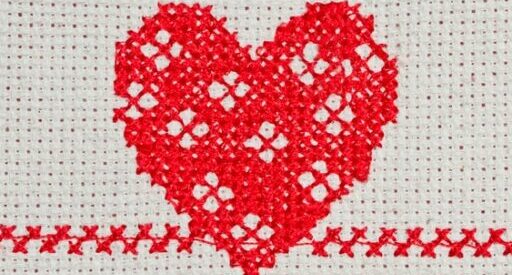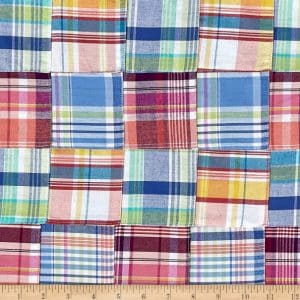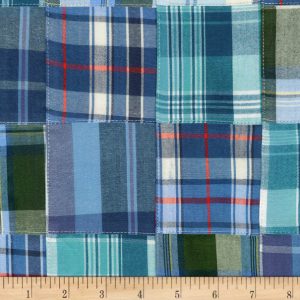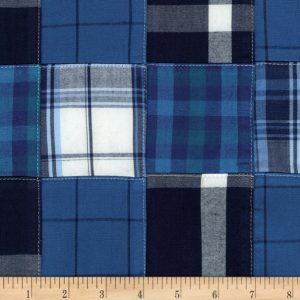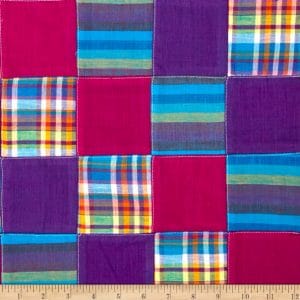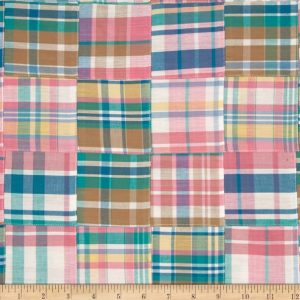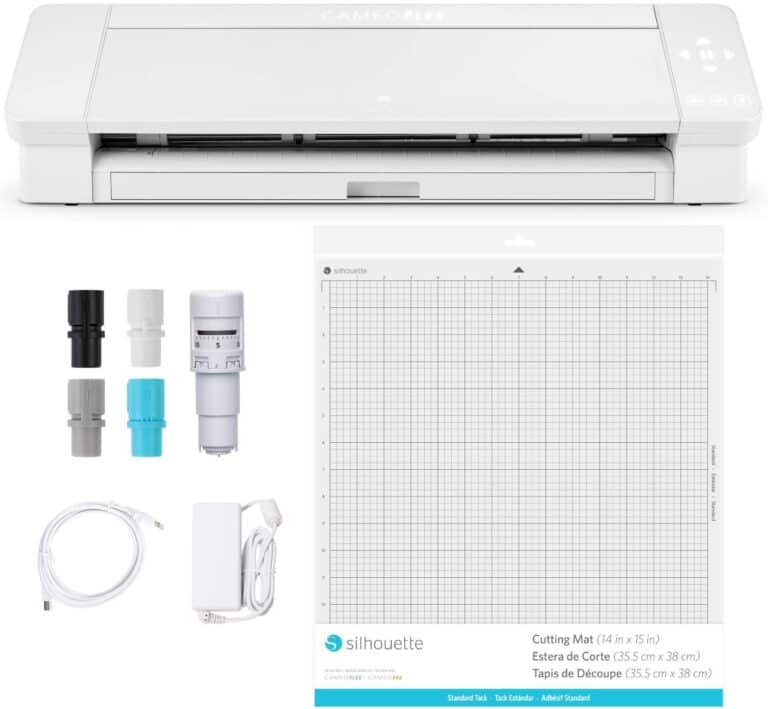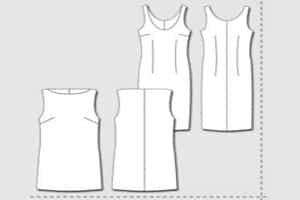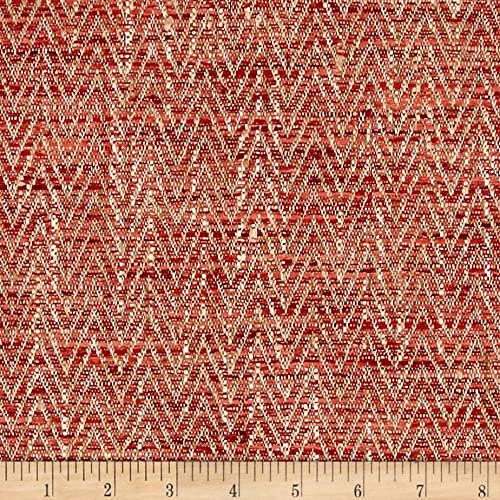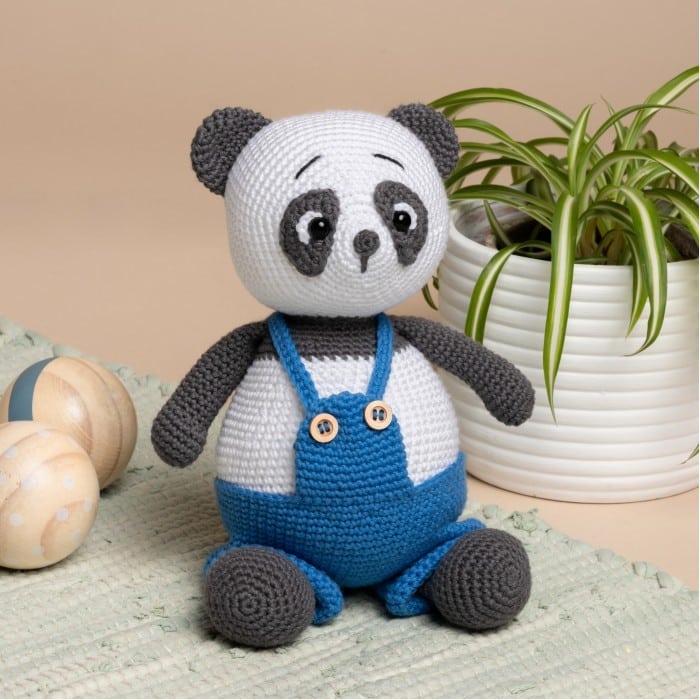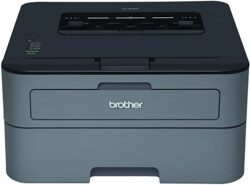Madras Fabric: History, Properties, Uses, Care, Where to Buy
Table of Contents
- 1 Introduction to Madras Fabric
- 2 KEY TAKEAWAY
- 3 What is the History of Madras Fabric?
- 4 Properties of Madras Fabric
- 5 How is Madras Fabric Made?
- 6 Where is Madras Fabric Made?
- 7 Common uses of Madras Fabric
- 8 How to care for Madras Plaid Fabric?
- 9 Where to buy Madras Fabric?
- 10 Conclusion
- 11 Best Madras Fabrics
- 12 Madras Fabric Buying Guide
Introduction to Madras Fabric
Madras Fabric is a material manufactured from semi-permanent vegetable dyes that are noted for leaking to produce the soft hues that the fabric is known for. The fabric is also widely structured with plaids, stripes, and checks.
In its original form, madras fabric originated in the Indian district of Madras. A garment can only be referred to as Madras if it originates in this region of India. Madras is a fabric that is frequently used to create clothes and outfits.
KEY TAKEAWAY
- Madras fabric is a lightweight and breathable material that is known for its soft hues and patterned surface.
- The fabric originated in the Indian district of Madras and was introduced to America in the 18th century.
- Madras fabric is commonly used for making clothes and apparel, as well as for home décor items such as mats, napkins, and pillow covers.
What is the History of Madras Fabric?
The Madras Plaid’s history begins with its distinctive name. Formerly known as ‘Madras,’ Chennai now is India’s fifth-largest metropolis. Madras was a shortened name for Madraspatnam, a fishing hamlet. To begin this story, we first go back to 1640, when the British entered the city of Madras.
The East India Company erected a factory and a fort at Madras to work for English merchants engaged in the spice trade. Because cotton manufacturing was the dominant local industry, the East India Company quickly adjusted and entered the textile industry.
They brought English weavers to Madras to work in the factory and learn the methods and techniques involved in creating the fabric. The fabric first appeared in America around the 18th century.
There was never any mistake about how the country would react to the fabric when it came to the Madras plaid. The New York Times reported the fabric was as short in supply when it first appeared in 1919.
Many men embraced the plaid as their grab-and-go holiday dress in the 1930s and 1940s after it began to gain prominence across America. This was likely due to the plaid’s breathable and comfortable-to-wear fabric, combined with the array of bold colors in which it was being created, which contributed to its fame.
Nowadays, the fabric is still high in demand and is worn by many consumers.
Properties of Madras Fabric
- It is lightweight
- It is breathable
- It has a patterned and textured surface
- It is quite soft and smooth. It can easily be cut using fabric scissors or a rotary cutter.
How is Madras Fabric Made?
Madras plaid fabric is a material that has similar patterns on both sides of the fabric. The fabric is made using cotton and is handwoven. The raw cotton is harvested, and the threads are woven from short-staple cotton fiber. The fibers formed are of carded cotton and not combed.
The fabric also has a distinct surface of bumps due to the slubs present in the yarn, which give Madras a different texture than other fabrics.
Where is Madras Fabric Made?
Madras plaid originated in India, and India is the largest producer of the fabric, along with some other Asian countries and China. Although China does not make the fabric in large quantities, the fabric may be sent there to form a finished good.
Common uses of Madras Fabric
Madras fabric is commonly used for making clothes and apparel for both women and men.
Daily wear
In addition to ties, bow ties, and pocket squares, the fabric can be used to make shirts and sports coats. It looks best when paired with muted colors because of its strong design. Apart from formal wear, it can also be used for summer wear such as shorts, dresses, and jackets.
Home décor
The fabric can make mats, napkins, pillow covers, artistic wall hangings, and table cloths. It has multiple uses as an accessory for home decoration and can be used creatively to make your home look great and elegant.
Sewing with Madras fabric
The fabric isn’t so hard to sew; rather, one should ensure using the correct sewing essentials and sewing notions and supplies for an easy and hindrance-free project.
When sewing patterns on madras plaid it is best to use an efficient and up-to-date sewing machine like the Brother SE600, one of the best sewing machines available. The sewing needle should be a 60/8 to 70/10 sharp. The sewing threads used should be made of cotton or polyester.
You can also use markers and chalk to mark the fabric during the initial stages of sewing since the fabric isn’t slippery.
Dyeing with Madras fabric
Originally Madras is hand-dyed after being twisted and turned into a yarn. However, though it may be unheard of, the fabric can be dyed again even if it has been dyed once in a process called overdyeing. The process is useful for designers and consumers with unique styles and preferred designs.
The Madras fabric can be dyed depending on the composition of the fabric. If made using cotton, silk, and other synthetic threads, the Rit All-Purpose Liquid Dye can be used as the best fabric dye available.
How to care for Madras Plaid Fabric?
Madras fabrics aren’t so hard to care for and can easily be washed and ironed without a hassle.
Washing
- Machine wash the fabric in cold water
- Tumble dry low
- Use a gentle washing detergent for cleaning
- The machine setting should be set to a delicate cycle
- Fabric softeners can be used
Ironing
- Using a shark steam iron, press the fabric on the wrong side
- Use a low heat setting and a press cloth
- Use pins to ensure the fabric stays in place
Where to buy Madras Fabric?
Madras fabric can be purchased from fabric and garment retailers. Clients can also purchase Madras fabric from online stores and websites like https://amzn.to/4b6kxLB and Amazon, which have the best Madras fabric available such as the mesmerizing Robert Kaufman Nantucket Patchwork 3 Summer or the patterned Textile Creations Madras Plaid Patchwork Purple.
It can be sold in several ways depending on the seller;
- By yard
- By Inches
- Can be cut to order
Conclusion
Spring and summer are ideal times to wear Madras for the women and men who want to look cool and stylish at the same time. The material is light and comfortable, and the patterns are striking and multipurpose.
Sources
Madras fabric is generally a patchwork style fabric that is comprised of smaller squares of different plaid fabrics that have already been pre-sewn together to create a signature, unique print. Madras fabric is usually quite lightweight and is often made of 100% cotton. Madras fabric has no set color combination and is often comprised of many different colors and plaid patterns.
Best Madras Fabrics
Here are our madras fabric reviews.
1. Robert Kaufman Nantucket Patchwork 3 Summer
This lightweight madras fabric is made from 100% cotton. The fabric is unique in that it features 3” by 3” squares that have already been pre-sewn together to make up the fabric. Madras is a great fabric to use for many different apparel items including pants, shorts, skirts, dresses, jackets, and more.
- Be sure to order enough fabric to match patterns
- Machine wash on cold, tumble dry on low heat
- Comes in 43” widths
2. Robert Kaufman Nantucket Patchwork 3 Retro
This fabric is comprised of 3” squares that have already been pre-sewn together. The fabric features shades of blues, greens, and some red. Madras fabric is a great fabric to use for summery pants and shorts, but can also be used to make a wide variety of other apparel items.
- This lightweight madras fabric is made from 100% cotton
- To launder, machine wash on cold and tumble dry on low heat
- Extra fabric should be ordered to be sure that patterns match up along seams
3. Robert Kaufman Nantucket Patchwork 3 Ultra Marine
This lightweight, 100% cotton madras can be purchased for under eleven dollars per yard. The fabric is made up of 3” plaid squares that have already been pre-sewn together to create a unique look. Madras fabric is great for making all sorts of apparel projects.
- Comes in 43” widths
- Colors in this fabric include different shades of blue with white
- Fabric can be machine washed with cold water and put in the dryer on low heat
4. Textile Creations Madras Plaid Patchwork Purple
This lovely fabric features shades of purples, pinks, blues, yellows, and more. This fabric can be purchased for under twelve dollars a yard and features 3” fabric squares that have already been sewn together for a unique look. Madras fabric is a great fabric for making apparel items like pants, shorts, skirts, dresses, shirts, and more.
- Machine wash, tumble dry on low heat
- Fabric is lightweight and is made from 100% cotton
- Comes in 43” widths
Shop Now on Amazon for Fabric Check Today's Price on Amazon
5. Robert Kaufman Nantucket Patchwork 3 Plaid Sorbet
This madras fabric has been yarn dyed and features 3” squares that have already been sewn together. This fabric features a whole host of colors- greens, blues, pinks, yellows, whites, and more. Madras fabric is great for making apparel items, but remember to order extra fabric to be sure that patterns match up along seams.
- Fabric is lightweight and is made from 100% cotton
- Available in 43” widths
- Machine wash with cold water, dry in the dryer on low heat
Shop Now on Amazon for Fabric Check Today's Price on Amazon
Madras Fabric Buying Guide
Madras fabric is a versatile, uniquely printed fabric that can be used for making shirts, pants, shorts, dresses, skirts, and more. Madras fabric is often made from 100% cotton. Madras fabric is quite easily recognizable and comes in many different color combinations. Madras fabric is a great choice for making summer apparel but doesn’t have to be limited to it.
Cost of Madras
Madras fabric is generally quite budget friendly and can usually be purchased for under twelve dollars per yard, though the fabric is often cheaper if more yardage is purchased. Madras fabric can be made up of many different colors on the different squares that have been pre-sewn together. Madras fabric is quite affordable, and it is versatile enough to be used for many different apparel sewing projects.
Benefits of Cotton
Cotton has many great natural benefits. Many madras fabrics are made from 100% cotton. Cotton is generally quite durable, soft, breathable, fairly easy to sew with, and is often readily available and more inexpensive to purchase. Cotton is also usually quite easy to care for and launder, which is a huge benefit for making apparel items. Because madras fabric is usually quite lightweight and is breathable, it is a good choice for making summery shorts and pants, as well as for skirts, dresses, and shirts.
Recommended Reading:
